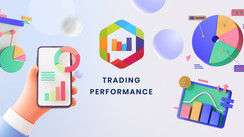Understanding Trading Assets
Trading assets are securities held by firms for resale with an aim of garnering profit. They encapsulate a broad spectrum, including stocks, bonds, currencies, commodities, and derivatives. Fluctuations in the value of these assets occur due to multiple factors, encompassing economic scenarios, political developments, and investor sentiment.
Diverse Array of Trading Assets
There exists a plethora of trading assets, each offering distinct traits and risk-reward dynamics. The most popular amongst them are:
Stocks: Stocks indicate your stake in a company. Procuring a stock translates to acquiring a portion of the company. The value of the stock escalates or plummets based on the company's fiscal health and overarching market environment.
Bonds: Bonds signify loans extended to a company or government. In purchasing a bond, you're essentially offering a loan to the issuer. The bond repays you a fixed interest over a designated timeframe and reimburses the principal amount upon term completion.
Currencies: Currencies are the exchange mediums used across various nations. Economic factors, political changes, and investor sentiment heavily influence the value of a currency.
Commodities: Commodities refer to the raw materials utilized in goods and service production. Commodity values are subject to changes based on supply-demand dynamics and international economic conditions.
Derivatives: Derivatives are financial entities deriving their value from a separate asset. For instance, a futures contract, a type of derivative, allows the buyer to purchase or sell an asset at a predetermined price at a future date.
Influencers on Trading Assets' Value
The value of trading assets undergoes continual fluctuations due to numerous influencing factors, with the most crucial ones being:
Economic Conditions: The economy's health significantly impacts trading assets' value. In recessionary periods, assets like stocks may lose value as investors lean towards less risky avenues.
Political Events: Political incidents can drastically affect trading assets' value. Conflicts or government shifts can lead to dramatic asset value fluctuations.
Investor Sentiment: Investor sentiment profoundly influences trading assets' value. An optimistic future outlook encourages asset buying, escalating their prices. Conversely, pessimistic sentiments lead to asset selling, pulling their prices down.
Present State and Future Forecast
Trading assets currently exist in a volatile and uncertain landscape. Challenges such as increasing inflation, supply chain disruptions, and political issues have dampened asset values, and the duration of this trend remains indeterminate.
Nevertheless, promising signs indicate a favorable future for trading assets. The global economy's long-term prospects appear bright, potentially strengthening asset values over time. Furthermore, tech advancements easing asset trading could boost future demand.
Expert Views
Expert opinions on trading assets' future vary. While some foresee a short-term decline with a long-term rebound, others predict continuing volatility before eventual stabilization.
Despite uncertainties, several positive elements could potentially bolster trading assets' value over time.
Wrapping Up
Trading assets are an intricate and perpetually evolving class of assets. Influenced by a host of factors, their future remains unpredictable. However, numerous positive indicators could ensure a robust long-term valuation.





